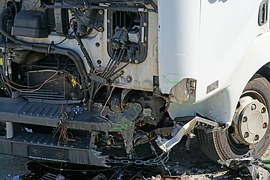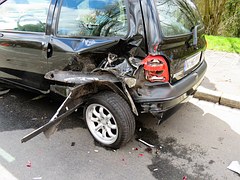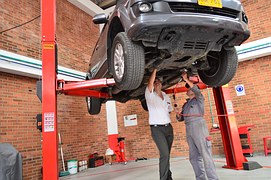#1 Most Important Step After Baltimore Motor Vehicle Accident?

The Foremost Next Step After Baltimore Car Crash?
To be sure there are a lot of contenders for the answer to this question. I’ve explored in other articles on this site the various steps that I suggest one take immediately after being involved in a serious Maryland motor vehicle accident. Barring incapacitating personal injury, the steps that one takes in those first few critical moments minutes or hours after the accident can play a key role in the quick, effective and seamless processing of insurance claims, the preservation of needed evidence, and the prompt delivery of needed compensation.
If you have been injured, or believe that you or your passengers likely could have been injured but are uncertain, prompt medical attention is obviously a priority.
If there are personal injuries, or suspected personal injuries, a call to get the Baltimore City police involved is also a recommended course of action. Of course, obtaining the key information from the other driver including

- name
- tag number
- address
- make and model of car
- VIN number,
- and all applicable insurance information
is a vital and essential measure. You should also familiarize yourself with your surroundings. You should be aware of:

- where the accident occurred
- the layout of the involved of roadways
- the presence of traffic control devices and signs
- any road markings
- all witnesses
Pictures often help. In fact, I Attorney Eric T. Kirk would suggest it is the rare individual who does not have a camera equipped cell phone with them most of the time. An accident is a perfect opportunity to document what happened, the participants’ information, and the results, i.e. the damage to the cars. Be mindful of the difference between recording the image of a person, and recording their voice without their consent. Baltimore personal injury attorneys often suggest noting the location of any potential video surveillance is recommended, and often overlooked, step in this process. Certainly, pictures of the damage to the vehicles and any other affected property are also highly recommended.
How to Know Which Steps to Take Next After Baltimore Accident?
Those first few moments after a collision occurs can leave one feeling bewildered, confused, dazed, and perhaps not thinking entirely clearly. Nevertheless, I’ve long suggested there is an important determination to make in the immediate aftermath of a car accident. I advise that individuals make an initial assessment of the situation based on the facts that are then available to you with an eye toward answering these questions: Was this an accident involving coincidental contact between two vehicles in which no one was injured and in which there was no or little property damage, or was this a situation in which:
- one or more individuals are, or could have been, injured
- significant property damage to one or more vehicles or other involved property exists, or
- the happening of the accident and, ultimately liability or responsibility for the collision could be disputed by the other side?
If your initial, contemporaneous assessment leads you to believe that any of these factors labeled [a], [b] or [c] are present then engaging in the additional detailed and thorough steps outlined at the beginning of this article and other chapters becomes obligatory and mandatory. If, on the other hand, your immediate off-the-cuff, on-the-spot assessment of the situation is it that is likely a situation involving no, small or relatively insignificant damage to a vehicle then this can be handled competently and quickly by an insurance company, and the other steps outlined -with the possible exception of obtaining insurance and identifying information from the other driver- are likely not necessary.
Baltimore personal injury attorneys encourage everyone involved in an accident to make this preliminary initial assessment- a triage if you will. Understandably, its an assessment you make, while potentially under some stress, and possibly while addressing a situation you have not confronted before.
There no right answers, just better ones. Erring on the side of caution is not penalized. If you find later that your initial assessment was not entirely accurate, you have not jeopardized anything. The bottom line remains, if your conclusion based on the evidence then available to you is that this is the type of incident that might result in a subsequent legal case then you need to ensure that you take the other, additional recommended steps to protect and guard your interest.



